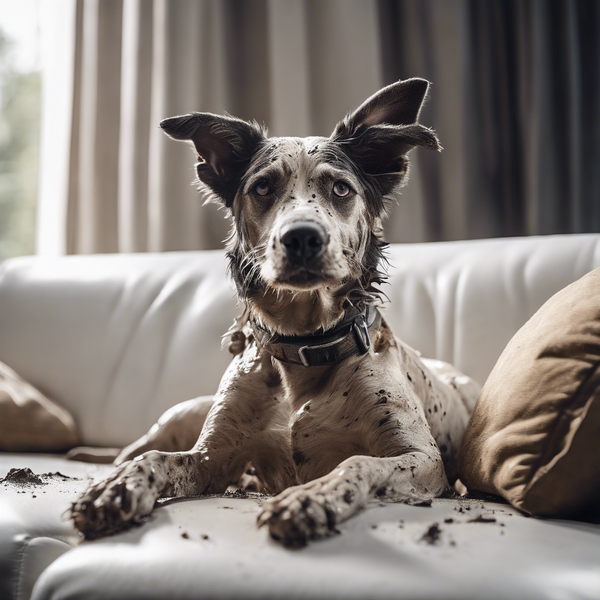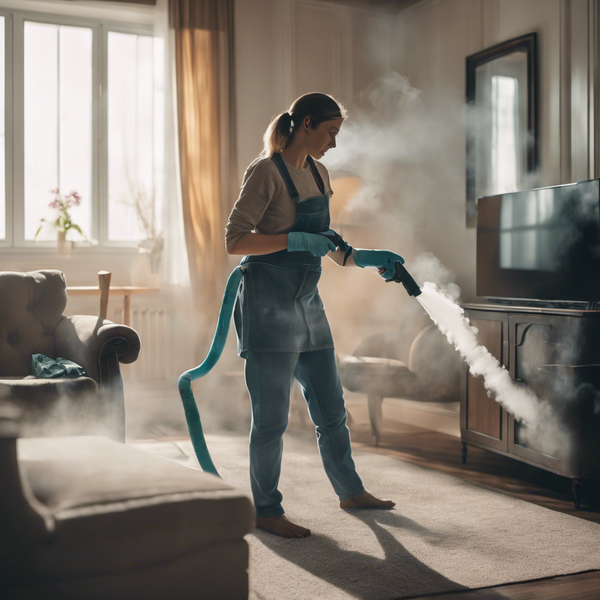Cats are the unofficial overlords of the internet and our homes. With their quirky antics and snuggly moments, they've pawed their way into our hearts. But with great pets come great responsibilities, and one of those is dealing with kitty litter. It's not just about scooping; it's about the aftermath that finds its way onto our floors and furniture. Enter the unsung hero of the pet owner's home: the special type of vacuum for kitty litter.
Key Takeaways:
- Understand the unique challenges kitty litter presents to standard vacuums.
- Discover the features that make a vacuum suitable for tackling kitty litter.
- Learn how the right vacuum can make pet maintenance easier and more efficient.
The Great Grainy Menace
When it comes to kitty litter, size does matter. Those tiny grains are like ninjas, adept at finding the most obscure nooks and crannies to hide in. A standard vacuum might suck up the visible offenders, but it's the stealthy grains that escape notice, plotting their gritty coup from under the couch. This is why a vacuum designed specifically for kitty litter is as essential as the litter box itself.
Moreover, kitty litter isn't just a challenge because of its size. It's also about the texture. Clumping litter, for example, can turn into cement-like clods when it meets moisture. Imagine the horror of such a clod getting lodged in the heart of your vacuum. It's the stuff of cleaning nightmares, which is why a special vacuum isn't just nice to have; it's a necessity.
A Suction Above the Rest
The right vacuum for kitty litter isn't just about power; it's about finesse. It needs to have the suction strength to deal with the weight of litter, which is often heavier than your average dust bunny. But it also needs to be gentle enough not to turn your carpet into a scene from a horror movie. The balance is delicate, and not all vacuums are up to the task.
What's more, the design of the vacuum's brush and filtration system is crucial. A brush that's too rough can scatter litter rather than collect it, and a poor filtration system means you're just redistributing litter dust into the air. That's not cleaning; that's just an indoor sandstorm waiting to happen.
The Battle Against the Smell
Kitty litter isn't just about the grains; it's about what comes with them. We're talking about the smell. It's a scent that can bring tears to the eyes and a wrinkle to the nose. A vacuum for kitty litter needs to have a filtration system that can tackle these odors, not just spread them around like a foul-smelling fairy.
And let's not forget about the bacteria. Litter boxes are a hotbed for germs, and a vacuum that isn't equipped to deal with them is like bringing a knife to a gunfight. You need a vacuum that can suck up the litter and lock away the germs, not give them a free ride to other parts of your home.
The Durability Dance
Kitty litter can be abrasive, and not all vacuums are built to handle that kind of rough love. The internal components need to be tough enough to handle the scratchy nature of litter without wearing down faster than your cat's interest in a new toy. This is where the build quality of a vacuum comes into play.
In addition, the maintenance of a vacuum used for kitty litter is a whole other ballgame. It needs to be easy to clean because let's face it, no one wants to spend more time cleaning their vacuum than their litter box. A vacuum that's a nightmare to maintain will quickly become the bane of any cat owner's existence.
The Quest for the Quiet
Cats have ears that can hear a mouse's heartbeat from across the room. So, imagine the terror they feel when a standard vacuum roars to life. A vacuum for kitty litter needs to have a decibel level that won't send your feline friend into the next county.
But it's not just about the cats; it's also about human sanity. A vacuum that's quieter means you can clean up after your kitty without feeling like you're on the tarmac of an airport. Peace and quiet are golden, and the right vacuum can help preserve that tranquility.
The Cord Conundrum
Cords and cats are like oil and water; they don't mix. Cats see cords as playthings, which can lead to a vacuum's untimely demise. A vacuum for kitty litter should ideally be cordless, giving you the freedom to chase down those rogue grains without worrying about your cat launching a sneak attack on the cord.
Moreover, a cordless vacuum means no more unplugging and replugging as you move from room to room. It's about convenience and reducing the number of obstacles between you and a clean home.
The Allergy Alleviator
For those with allergies, kitty litter can be a trigger. The dust can set off a symphony of sneezes and sniffles. A vacuum designed for kitty litter should have a HEPA filter or similar technology to trap allergens and prevent them from recirculating in the air.
This isn't just about comfort; it's about health. A vacuum that can reduce allergens can make a significant difference in the quality of life for allergy sufferers. It's a thoughtful feature that shouldn't be overlooked.
The Space Saver
Not everyone has the luxury of ample storage space. A vacuum for kitty litter should be compact enough to fit into the nooks and crannies of your home without sacrificing power or efficiency. It's about maximizing functionality while minimizing the footprint.
A vacuum that's too bulky is like a cat that won't fit in its bed; it's awkward and takes up too much space. The right vacuum is like the perfect cat perch; it fits just right.
The Multi-Tasking Maestro
A vacuum for kitty litter shouldn't be a one-trick pony. It should be versatile enough to handle other pet-related messes, like fur and spilled food. It's about getting the most bang for your buck and making pet maintenance as hassle-free as possible.
A vacuum that can only handle kitty litter is like a cat that only eats one brand of food; it's not very practical. The right vacuum is like a cat with a diverse palate; it's ready for anything.
The Investment in Sanity
Lastly, investing in a vacuum for kitty litter is an investment in your sanity. It's about making the daily routine of pet maintenance less of a chore and more of a breeze. It's about knowing that you have the right tool for the job, one that won't leave you cursing under your breath as you find litter in your bed for the umpteenth time.
A vacuum for kitty litter is like a good scratching post; it's essential for a happy home. It's a purchase that pays for itself in peace of mind and cleanliness.
Summary
In the grand scheme of pet ownership, the right vacuum for kitty litter is a game-changer. It's about more than just cleaning; it's about creating a home environment that's comfortable for both you and your feline friend. From the power and design to the filtration and noise level, every feature plays a crucial role in tackling the unique challenges of kitty litter. Investing in a vacuum that's up to the task is an investment in a happier, healthier home.
FAQ Section
Q: Can't I just use a regular vacuum for kitty litter? A: While you can use a regular vacuum, it may not be equipped to handle the abrasive nature of kitty litter, the potential odors, and bacteria, or have the necessary filtration to deal with allergens. A special vacuum for kitty litter is designed to address these specific challenges.
Q: What features should I look for in a vacuum for kitty litter? A: Look for a vacuum with strong suction, a filtration system that can handle odors and allergens, durability to withstand the abrasiveness of litter, and a design that's both quiet and compact. Cordless models can also offer additional convenience.
Q: Is it worth investing in a vacuum specifically for kitty litter? A: Absolutely. A vacuum designed for kitty litter can save you time and effort in cleaning, reduce allergens and bacteria in your home, and make the pet maintenance routine more bearable. It's an investment in your home's cleanliness and your own peace of mind.







